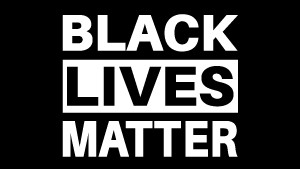We know some of you are already experiencing cancellations and revenue loss due to the Coronavirus and others are bracing for the same. We wanted to share some ideas for navigating your business through this stressful and frightening time.
 There are precious few solid answers right now. We don’t know for sure when this will end, or how bad it will get before it does. But as with any emergency or crisis, planning a path through will help to minimize the impact—and help calm nerves a bit, too.
There are precious few solid answers right now. We don’t know for sure when this will end, or how bad it will get before it does. But as with any emergency or crisis, planning a path through will help to minimize the impact—and help calm nerves a bit, too.
Here are five things you can take charge of in this time of uncertainty to help your clients and your business:
1. Employ safety protocols
You’re probably already well underway on this. But just in case: What are you doing to keep your clients, staff, and yourself safe? For example:
- Hand washing and sanitizing surfaces and equipment throughout the day
- Wearing gloves if you are still entering clients’ homes
- Cancelling group events if warranted in your area
- Encouraging at-risk clients and any clients not feeling well to stay home from events still being held
- Asking staff to stay home if they aren’t feeling well, and committing to doing the same yourself
- Meeting at clients’ vehicles instead of having them come inside for pick-up and drop-off
Look at all ways you can reduce the chances of coming into contact with and spreading the virus.
2. Plan alternative services
Few dog businesses will get through this time without seeing cancellations and slow downs, and many will have to cancel services in compliance with government requests or requirements to protect public health. Many of you are already experiencing this.
To help minimize your revenue loss, and to continue to support clients and their dogs, what can you do to creatively alter your services? Trainers teaching classes might move lessons online using simple applications like Zoom, or send out video-taped lessons along with written homework. Private trainers can take consults online as well.
Dog walkers and dog daycares, look for ways to help keep your clients’ dogs from going stir crazy without their usual exercise outlets. You might drop off mental stimulation “bark boxes” on your clients’ doorsteps, full of (carefully sanitized) puzzle toys, chews, and such, and back these up with daily emails with tips for their use and ideas for at-home exercise games.
3. Review your policies
Decide how you will handle cancellations. If you’ve been following us for very long, hopefully you’ve got very strict policies to protect your business’ revenue. If so, this is one of those rare times to bend them. We’re all in this together, and that includes your clients. Part of coming out on the other side of this intact (if a bit battered) and ready to rebuild is taking good care of clients.
That said, providing alternative services like those described above can help. In some cases, you can also offer to postpone services. For example, applying boarding or pet sitting fees already collected toward future travel opportunities, or class fees to future sessions. Measures such as these will not help you avoid all cancellation losses, but employed well they can help reduce them.
4. Communicate with clients
If you haven’t already, let clients know what you’re doing to keep them safe, by sharing your safety protocols for their peace of mind.
In your letter or email, you might point people to the CDC or World Health Organization for the latest information about COVID and dogs. The WHO has a graphic you can share with your clients. Remember that we are not experts on this; your role isn’t to explain details about the virus. It’s safer for you to simply share where clients can go to get this information.
Also share with your clients any changes you’re making to your services or alternative options you’re providing to help avoid cancellation requests. Share adjustments to your policies, too, where appropriate.
5. Prepare for recovery
It may seem crazy to be thinking of marketing right now, but the key to a quick recovery is marketing now. Put any downtime you have due to the virus into actively working on your marketing. Shore up current efforts and add new projects to your mix. Doing so will help you get fully back on your feet faster when this is over, and also help stave off anxiety now by giving you something productive to focus on.
When so much is out of our control, the best we can do is to take active control of what we can.
One more thing you can do: Join us for a free COVID Response Web Seminar
If you want to take a closer look at how to develop your five-step plan, or if you have questions and need answers from a trusted source, join us for a free web seminar on navigating the Coronavirus epidemic. We’ll be sharing more ideas like these and answering as many of your questions as we can.
Learn more and register here.


